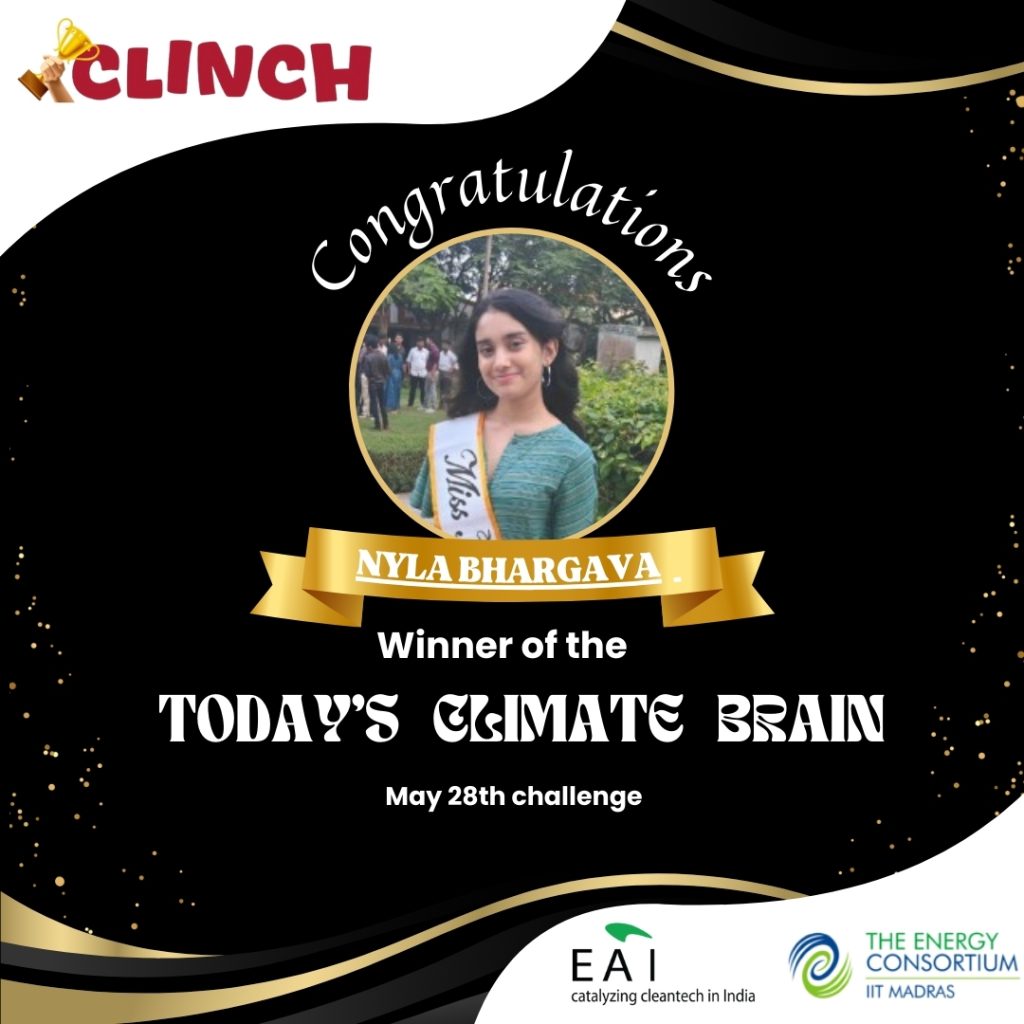
?????? June 2024 is an upcoming contest by ???????? aimed at inspiring college students to innovate for climate.
In the run-up to the event, we are conducting the ??????? ????? ?????????, where participants tackle daily climate-related questions, showcasing their creativity and knowledge.
??????? ????? ?? ??? ??? ??? 28 – ???? ???????? ???? ??? ????????? ?? ??????????
The winner for that day will be given the Climate Brain title for the day.
The challenge for May 28 was:
??????? ??? ??? ??? ????? ?? ? ??????? ?????????? ???????. ??? ??? ????? ?? ?????? ??? ?????? ???? ????? ????? ??????????? ?????? ?????:
?????????? 1 : A breakthrough idea in nuclear fusion that can make it modular, though it could take at least 2 decades to become commercial
?????????? 2 : A free, intuitive smart phone app that claims to provide effective sustainability education to the masses right away, covering over 50 lifestyle activities
?????????? 3 : An innovative, affordable monitoring system that can increase the output of large solar power plants by about 15% and which can be implemented within months for many existing solar power plants.
Which of the three innovations would you choose as the winner, and why.
About 50 participants answered – thank you to every one of you!
The Climate Brain for May 28 is:
Nyla Bhargava – from SRM University
Her answer:
“No organisation ever created an innovation. People innovate, not companies. No innovation can be termed as immediate increment but it is said to be revolutionary, because of this I personally think that the sustainability education app is the best choice for doing something revolutionary.
It reaches a broad audience, has long term benefits and especially it is cost effective. Though it might not offer an immediate application but with proper impartation of knowledge and practical skills, it can lead to the creation of something even more revolutionary by the people. Further updates and new content can be easily added to the app and can be shared between individuals, also educated citizens are more likely to support and advocate for sustainable policies and practices. Additionally this idea can be improved by including short term sustainability goals and progress tracking. Introducing challenges and rewards that encourage sustainable actions, have interactive educational content and formation of local groups.
This system can use machine learning algorithms and carbon footprint calculators for more personalized details. With government and NGO collaboration, sustainability can surely be achieved by combined efforts.”
Congrats Nyla, and may you scale greater heights.
